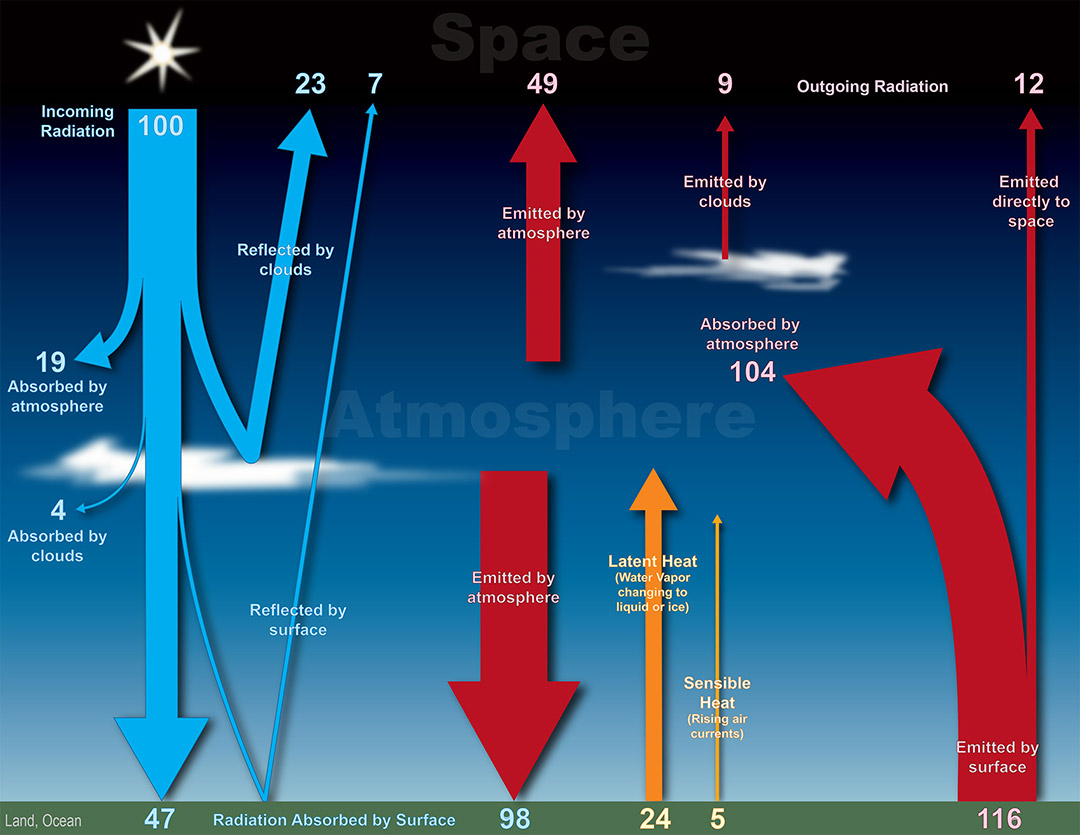Importance of Clouds
Depending on the characteristics and height in the atmosphere, clouds can affect the Earth's energy balance. And they also help regulate the climate. Here are just a few of the functions of clouds in the earth-atmosphere system.
- Clouds can block, reflect, and scatter incoming solar radiation from the Sun, and absorb some of Earth's infrared energy.
- Clouds serve as a way to redistribute extra heat from the equator toward the poles.
- Clouds are an essential part of the water cycle. All precipitation (rain, hail, sleet, and snow) comes from clouds.
- The type of cloud can also indicate various atmospheric processes, such as turbulence and surface heating.

Source: National Weather Service